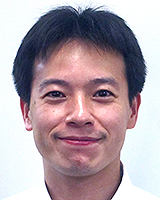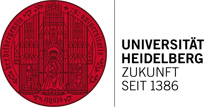“In modern research, team working is a key factor”

Prof. Dr. Tomohiro Hayashi, Chemist at Tokyo Institute of Technology in Tokyo/Japan
Doctoral Candidate at Institute for Physical Chemistry at Heidelberg University from 2000 to 2003
Why did you decide to come to Heidelberg University?
This was just by accident! First, I planned to join universities in the US. Unfortunately, the universities I wanted to enter did not accept my master’s degree issued in Japan, and I had to start from the master’s course again. Fortunately, I had a chance to meet Prof. Michael Grunze, who was a leading scientist in a field of surface science, in Japan. I managed to have a discussion with him and succeeded in talking with him for 10 min. After the discussion, I found that a Ph.D. position in his group was available in the WEB page of his group and asked him for the possibility by email. Then, he replied to my mail within 5 min! This was the moment my life changed suddenly.
What were your experiences in Heidelberg?
In Prof. Grunze’s group, there were many international members from a variety of countries such as the US, Poland, Italy, Egypt, Taiwan, China, Japan, etc. I really enjoyed this international atmosphere. Outside of the campus, I learned German language in Goethe Institut for 3 months (started from a G1 (very basic) class!). Skills in German really helped me to get into the German and other societies. Me and my wife, we really enjoyed our lives in Heidelberg.
What is your view of the German scientific system in comparison to that of your home country or to that of other countries where you may have conducted research?
Hierarchy in Prof. Grunze’s lab is similar to that in Japan. Under a lab head, there are several group leaders who run their groups, and students work as a team under the group leaders’ supervision. The style of Ph.D. exam is also similar. But in Germany, reviewers give the score of the exam clearly, whereas Ph.D. candidates will get “yes” or “no” in Japan. This is the clear difference. Another difference is the scholarship (salary) to graduate students. In Japan, graduate students need to pay tuition fee (around 2000-4000 Euro /year, in addition to this students have to pay admission fee (2000-3000 Euro)). So without financial help from their parents, it is difficult to finish master’s course. Students in Germany should be proud of this. Considering the educational system of Germany is very supportive for both domestic and international students.
In your opinion, what is the importance of international exchanges for researchers?
Recently, globalization has continuously boosted internationalization of working environments in Japan. Experience in international exchange is important to work with foreigners in a team smoothly. As for science, in modern research, team working is a key factor – please compare recent top level research activities with those in Einstein’s era. I strongly believe that "chemical reactions" always occur in the team of researchers with different backgrounds of education and culture, since they try to understand each other to reach their goal. I think that the skill of team working is also trained by joining international exchange activities. I always try to welcome foreign students to reproduce this situation in my group – 7 of 14 members come from abroad.
How did your career continue after your time in Heidelberg?
After my Ph.D. in Heidelberg, I moved back to Japan and started working in Tokyo Institute of Technology as postdoc. After that, I got a position in National Institute of Advanced Industrial Science and Technology located in Tsukuba science city. In 2007, I joined in Tokyo Institute of Technology as assistant professor and promoted to associate professor in 2010.
Do you recommend a research visit to Heidelberg University to your students or to colleagues in your scientific network?
Yes! Unfortunately, most of my ex-colleagues left Heidelberg. However, I plan to work with Prof. Tanaka, who is a Professor at the Institute for Physical Chemistry. We have already discussed our collaboration several times and I plan to stay in his lab. This new connection motivates me to send my students and colleagues to Heidelberg.
How do you rate the opportunities offered by Heidelberg Alumni International and the Research Alumni Network?
I really appreciate the arrangements of HAI especially in Japan by Frau Sabine Schenk of HAJP. After getting my Ph.D. (2003), there have been no activities for 12 years for alumni. I hope that I can contribute to the activities of the community of University of Heidelberg in future.

